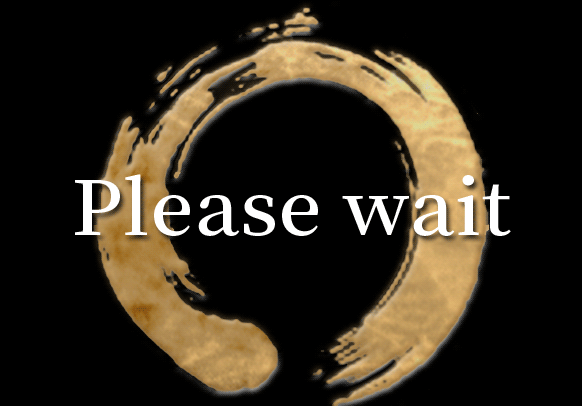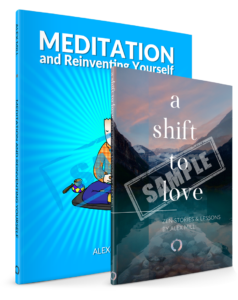PRIVACY POLICY
PLEASE READ THE FOLLOWING PRIVACY POLICY CAREFULLY BEFORE ACCESSING ANY PART OF THE WEBSITE.
INTRODUCTION
We have created this privacy statement in order to demonstrate our firm and continuing commitment to the privacy of personal information provided by those visiting and interacting with any website controlled by Alex Mill, Zen Life Coaching | LLC. We hold the privacy of your personal information in the highest regard. The following discloses our information gathering and dissemination practices for these websites. Alex Mill | Zen Life Coaching, LLC abides by the rules dictated in law by the U.S. FCC (Federal Communications Commission).
We recognize the importance of protecting your privacy and our policy is designed to assist you in understanding how we collect, use and safeguard the personal information you provide to us and to assist you in making informed decisions when using our sites. This policy will be continuously assessed against new technologies, business practices, and our customers’ needs.
WHAT INFORMATION DO WE COLLECT?
When you visit these websites you may provide us with two types of information: personal information you knowingly choose to disclose that is collected on an individual basis and Web site use information collected on an aggregate basis as you and others browse our Web site.
1. PERSONAL INFORMATION YOU CHOOSE TO PROVIDE
Registration Information
When you register for any of our products, services or newsletters you will provide us information about yourself.
Credit Card Information
If you choose to avail of our services, you may need to give personal information and authorization to obtain information from various credit services. For example, you may need to provide the following information:
- Name
- Mailing address
- Email address
- Credit card number
- Name on credit card
- Credit card billing address
- Business and home phone number
- Email Information
If you choose to correspond with us through email, we may retain the content of your email messages together with your email address and our responses. We provide the same protections for these electronic communications that we employ in the maintenance of information received by mail and telephone.
2. WEB SITE USE INFORMATION
Similar to other commercial Web sites, our Web sites utilize a standard technology called “cookies” (see explanation below, “What Are Cookies?”) and web server log files to collect information about how our Web site is used. Information gathered through cookies and Web server logs may include the date and time of visits, the pages viewed, time spent at our Web site, and the Web sites visited just before and just after our Web site.
How Do We Use the Information That You Provide to Us?
Broadly speaking, we use personal information for purposes of administering our business activities, providing the products and services you requested, to process your payment, , to monitor the use of the service, our marketing and promotional efforts and improve our content and service offerings, and customize our site’s content, layout, services and for other lawful purposes. These uses improve our site and better tailor it to meet your needs.
Furthermore, such information may be shared with others on an aggregate basis. Personally identifiable information or business information will not be shared with parties except as required by law.
Occasionally, we may also use the information we collect to notify you about important changes to our Website, new services, and special offers we think you will find valuable. You may notify us at any time if you do not wish to receive these offers by emailing us at the link provided on the newsletter.
What Are Cookies?
A cookie is a very small text document, which often includes an anonymous unique identifier. When you visit a Web site, that site’s computer asks your computer for permission to store this file in a part of your hard drive specifically designated for cookies. Each Web site can send its own cookie to your browser if your browser’s preferences allow it, but (to protect your privacy) your browser only permits a Web site to access the cookies it has already sent to you, not the cookies sent to you by other sites. Browsers are usually set to accept cookies. However, if you would prefer not to receive cookies, you may alter the configuration of your browser to refuse cookies. If you choose to have your browser refuse cookies, it is possible that some areas of our site will not function as effectively when viewed by the users. A cookie cannot retrieve any other data from your hard drive or pass on computer viruses.
How Do We Use Information We Collect from Cookies?
As you visit and browse our Web site, the site uses cookies to differentiate you from other users. In some cases, we also use cookies to prevent you from having to log in more than is necessary for security. Cookies, in conjunction with our Web server’s log files, allow us to calculate the aggregate number of people visiting our Web site and which parts of the site are most popular. This helps us gather feedback to constantly improve our Web site and better serve our clients. Cookies do not allow us to gather any personal information about you and we do not intentionally store any personal information that your browser provided to us in your cookies.
IP Addresses
IP addresses are used by your computer every time you are connected to the Internet. Your IP address is a number that is used by computers on the network to identify your computer. IP addresses are automatically collected by our web server as part of demographic and profile data known as traffic data so that data (such as the Web pages you request) can be sent to you.
Sharing and Selling Information
We do not share, sell, lend or lease any of the information that uniquely identifies a subscriber (such as email addresses or personal details) with anyone except to the extent it is necessary to process transactions or provide services that you have requested.
How Can You Access and Correct Your Information?
You may request access to all your personally identifiable information that we collect online and maintain in our database by emailing us at the usual address.
What About Legally Compelled Disclosure of Information?
We may disclose information when legally compelled to do so, in other words, when we, in good faith, believe that the law requires it or for the protection of our legal rights. We may also disclose account information when we have reason to believe that disclosing this information is necessary to identify, contact or bring legal action against someone who may be violating our Terms of Service or to protect the safety of our users and the Public.
What About Other Web Sites Linked to Our Web Site?
We are not responsible for the practices employed by Web sites linked to or from our Web site or the information or content contained therein. Often links to other Web sites are provided solely as pointers to information on topics that may be useful to the users of our Web site.
Please remember that when you use a link to go from our Website to another web site, our Privacy Policy is no longer in effect. Your browsing and interaction on any other web site, including web sites, which have a link on our Website, is subject to that Web site’s own rules and policies. Please read over those rules and policies before proceeding.
Your Consent
By using our Web site you consent to our collection and use of your personal information as described in this Privacy Policy. We reserve the right to amend this privacy policy at any time with or without notice.
Our Commitment To Data Security:
Please note that your information will be stored and processed on our computers in the United States. The laws on holding personal data in the United States may be less stringent than the laws of your Country of residence or citizenship. To prevent unauthorized access, maintain data accuracy, and ensure the correct use of information, we have put in place appropriate physical, electronic, and managerial procedures to safeguard and secure the information we collect online.
Choice/Opt-In/Opt-Out:
This site allows visitors to unsubscribe so that they will not receive future messages. After unsubscribing we will discontinue sending the particular messages as soon as technically feasible.
Surveys & Contests
From time-to-time, our site requests information from users via surveys or contests. Participation in these surveys or contests is completely voluntary and the user, therefore, has a choice whether or not to disclose this information. Information requested may include contact information (such as name and shipping address), and demographic information (such as zip code, age level). Contact information will be used to notify the winners and award prizes. Survey information will be used for purposes of monitoring or improving the use and satisfaction of this site.
A SPECIAL NOTE ABOUT CHILDREN
Children are not eligible to use our services unsupervised and we ask that children (under the age of 18) do not submit any personal information to us. If you are a minor, you can use this service only in conjunction with permission and guidance from your parents or guardians.
ACQUISITION OR CHANGES IN OWNERSHIP
In the event that the web site (or a substantial portion of its assets) is acquired, your information would be considered part of those assets and may be part of those assets that are transferred.
POLICY MODIFICATIONS
We may change this Privacy Policy from time to time. If/when changes are made to this privacy policy, we will email users who have given us permission to do so. We will post any changes here, so be sure to check back periodically. However, please be assured that if the Privacy Policy changes in the future, we will not use the personal information you have submitted to us under this Privacy Policy in a manner that is materially inconsistent with this Privacy Policy, without your prior consent.
DISCLAIMER
By participating in/reading Alex Mill | Zen Life Coaching, LLC’s coaching service/website/blog/email series, you acknowledge that he is not a licensed psychologist or medical professional and his services do not replace the care of psychologists or other medical professionals. Coaching is in no way to be construed or substituted as psychological counseling or any other type of therapy or medical advice. Alex Mill | Zen Life Coaching, LLC will at all times exercise his best professional efforts, skills, and care. However, he cannot guarantee the outcome of coaching efforts and/or recommendations on his website/blog/email series and his comments about the outcome are expressions of opinion only. He cannot make any guarantees other than to deliver the coaching services purchased as described.




 Alex Mill trained in a Zen Buddhist monastery for nearly 14 years. He now offers his extensive experience to transform people’s lives and businesses through timeless Zen principles.
Alex Mill trained in a Zen Buddhist monastery for nearly 14 years. He now offers his extensive experience to transform people’s lives and businesses through timeless Zen principles.



Thank you Alex. I think I will be doing more of this.
I have a problem with my Apple TV. Oftentimes it is so stuck in buffering I am not able to
watch a thing. It was my habit to watch stuff in the evenings—play a DVD, catch something on
Netflix or youtube. It can be a lot of fun sometimes, but I also find I am bored by a lot of it, too.
I’m restless, switch around, try one thing or another.
DVD player stopped working, needs to be cleaned. It is difficult to find DVD cleaners in the stores!
So I am waiting on an order from Amazon. That plus the buffering issue has led to me to just sit and BE in my dimly lit living room, with the koi fish busily swishing around in the aquarium.
I don’t try to stop thinking, though. I don’t believe thoughts are the problem. I just let them come and go. There is a book written by a monk, who teaches meditation: “Thoughts Are Not The Enemy.”
“In most forms of meditation, the meditator is instructed to let go of thoughts as they arise. As a result, thinking is often taken, unnecessarily, to be something misguided or evil. This approach is misguided, says Jason Siff. In fact, if we allow thoughts to arise and become mindful of the thoughts themselves, we gain tranquillity and insight just as in other methods without having to reject our natural mental processes. And by observing the thoughts themselves with mindfulness and curiosity, we can learn a good deal about ourselves in the process.”
I think it comes down to what feels right to us. I don’t think meditation can be approached as “one size fits all.”
Anyway thanks for this Alex. Important message, well said.
You’re welcome, Jen.
There are many, many different types and styles of meditation in the world today. From listening to binaural beats with big ol’ headphones, to lying down and allowing yourself to leave your body, to focusing on a candle at the exclusion of everything else, etc.
I trained in a Zen monastery for nearly 14 years and all I can share is my experience of Zen meditation (Zazen). In this style of meditation, it doesn’t matter what feels right to us (which “us” are we referring to, anyway?).
In any case, I’m happy you found a practice that speaks to you. Thanks for sharing your experience and visiting my website.
In lovingkindness,
Alex